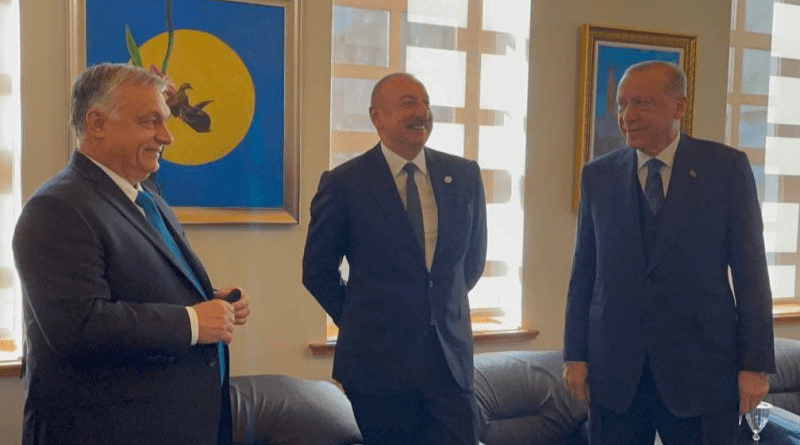Orbán Congratulates Azerbaijan Over Nagorno-Karabakh
By EurActiv
(EurActiv) — Hungarian Prime Minister Viktor Orbán on Friday (3 November) congratulated Azerbaijani President Ilham Aliyev, in his first public comments since Baku recaptured Nagorno-Karabakh from ethnic Armenian separatists.
Armenia and Azerbaijan have been locked in a decades-long conflict for control of Baku’s Armenian-populated region of Nagorno-Karabakh.
Baku took control of the mountainous region in September in a lightning 24-hour offensive that ended decades of pro-Armenian separatist rule.
“I would like to take this opportunity to wish President Aliyev every success in his work to stabilise the region, and every success in the reconstruction work in Karabakh,” said Orbán during a summit of Turkic States in the Kazakh capital Astana.
“Congratulations dear Mr. President!” he added.
The Organization of Turkic States is an intergovernmental organisation initiated by Turkey comprising countries of the same family of languages, its members being Azerbaijan, Kazakhstan, Kyrgyzstan, Turkey and Uzbekistan. Hungary and the internationally unrecognized North Cyprus have observer status.
The Hungarian language is part of the Finno-Ugric branch of languages, but Orbán says the country has Hun-Turkic origins.
Other leaders attending the summit have also congratulated Aliyev on this topic.
The European Union is looking to host talks between the leaders of Armenia and Azerbaijan to reduce tensions.
Unlike other EU members, Hungary has long cultivated a close relationship with Baku, taking Azerbaijan’s side in the Nagorno-Karabakh conflict.
In contrast, Hungary only restored diplomatic relations with Armenia last year, after a 10-year-long break.
Yerevan severed diplomatic relations in 2012 after Budapest sent Ramil Safarov, an Azerbaijani army officer convicted of killing an Armenian soldier, back home.
Upon his return, Safarov was given a hero’s welcome, a presidential pardon and a promotion.

